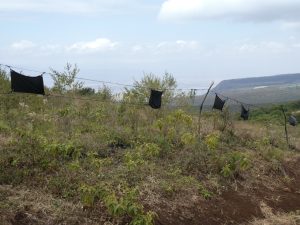PAMS-Foundation
Tanzania is famous for its national parks; after all, around a third of the country’s land area is protected. However, the conflicts between humans and nature are fundamental in the area of the parks: as the wild animals living in the parks threaten the livelihoods of the neighbouring population and the grasslands of the parks are not available as grazing areas for the herds of Maasai animals, the people are hardly prepared to support the idea of animal and nature conservation. Together with PAMS, we are working to ensure that the wild animals and national parks are protected, but also that the people living near the parks can live safely and understand and accept the need to protect nature and species.
More information can be found on the homepage of PAMS: https://pamsfoundation.org/
Nature/environmental protection education at secondary schools
 upendo supports PAMS in environmental education at 10 secondary schools to the east and west of the neighbouring Tarangire National Park. Pupils there are offered the opportunity to participate in a voluntary “club”, which is very popular with the pupils. There they learn the meaning of nature and animal protection, how to plant trees and they visit the neighbouring national parks. In doing so, they learn to understand the most important environmental problems in their region. It is a pleasure to see how clearly and distinctly the pupils can recognise and discuss the environmental and nature conservation problems of their country.
upendo supports PAMS in environmental education at 10 secondary schools to the east and west of the neighbouring Tarangire National Park. Pupils there are offered the opportunity to participate in a voluntary “club”, which is very popular with the pupils. There they learn the meaning of nature and animal protection, how to plant trees and they visit the neighbouring national parks. In doing so, they learn to understand the most important environmental problems in their region. It is a pleasure to see how clearly and distinctly the pupils can recognise and discuss the environmental and nature conservation problems of their country.
Elefantenkorridor am Ngorongoro-Krater
 Together with PAMS, we have been running the project to protect the elephant corridor at the world-famous Ngorongoro Crater for several years. The elephants in the crater migrate on centuries-old routes from the crater to other national parks. However, due to the strong growth of the Tanzanian population, more and more people are looking for opportunities to create new fields. Elephants now like to forage in fields that are ripe for harvesting, which can lead to people going hungry. A protective fence along the corridor now keeps the elephants in the corridor. The “fence” consists of cloths dipped in chilli broth. Elephants’ sense of smell is highly sensitive; the animals stay away from the fence and do not eat the fields or enter the villages. Trained rangers also advise the local population on how to handle the elephants correctly and help them to cross the corridor. In this way, the farmers learn to protect themselves and their fields and to live with the wild animals. Only then are they understandably prepared to accept the idea of a National Park and the protection of wild animals. In recent years, upendo has been able to support similar projects in the Simanjiro district and near the Ruaha National Park.
Together with PAMS, we have been running the project to protect the elephant corridor at the world-famous Ngorongoro Crater for several years. The elephants in the crater migrate on centuries-old routes from the crater to other national parks. However, due to the strong growth of the Tanzanian population, more and more people are looking for opportunities to create new fields. Elephants now like to forage in fields that are ripe for harvesting, which can lead to people going hungry. A protective fence along the corridor now keeps the elephants in the corridor. The “fence” consists of cloths dipped in chilli broth. Elephants’ sense of smell is highly sensitive; the animals stay away from the fence and do not eat the fields or enter the villages. Trained rangers also advise the local population on how to handle the elephants correctly and help them to cross the corridor. In this way, the farmers learn to protect themselves and their fields and to live with the wild animals. Only then are they understandably prepared to accept the idea of a National Park and the protection of wild animals. In recent years, upendo has been able to support similar projects in the Simanjiro district and near the Ruaha National Park.
